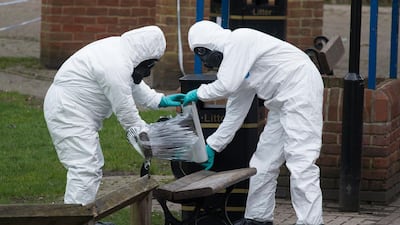Former Russian spy Sergei Skripal has left a British hospital, more than two months after he was poisoned with a nerve agent and left fighting for his life.
Mr Skripal, 66, and his daughter Yulia were found unconscious on a park bench in the English city of Salisbury on March 4, and spent weeks in critical condition.
Yulia, 33, recovered more quickly than her father and was discharged last month.
A statement from police said the pair were in recovery. "They are both making good progress and we are pleased that Mr Skripal has now also been released from hospital," the statement said. "This is a complex investigation and detectives continue to gather and piece together all the evidence to establish the full facts and circumstances behind this dreadful attack."
Mr Skripal is a former Russian intelligence officer who was convicted of spying for Britain before his release as part of a 2010 prisoner swap. He had been living quietly in the cathedral city of Salisbury, 145 kilometres southwest of London, when he was struck down.
Britain says the Skripals were poisoned with a military-grade nerve agent and that Russia was behind the attack. Moscow denies it.
Russian President Vladimir Putin welcomed the news of Mr Skripal's recovery, but denounced the British explanation for his illness.
"If a military-grade agent had been used as our British colleagues claimed, the man would have died on the spot," Mr Putin said Friday after talks with German Chancellor Angela Merkel in the southern Russian city of Sochi. "Thank God he has recovered, has walked out of the hospital and I hope will stay safe and healthy."
The poisoning has sparked a Cold War-style diplomatic crisis between Russia and the West, including the expulsion of hundreds of diplomats from both sides.
The international chemical weapons watchdog has backed up Britain's finding that the Skripals were poisoned with Novichok, a class of nerve agent developed in the Soviet Union. Russia says Britain can't prove that the substance used to poison the Skripals was made in Russia.
British police say they believe the toxin was smeared on the door handle of Skripal's suburban house. Hundreds of counterterrorism officers and support staff have been assigned to the case but police have not yet named any suspects.

